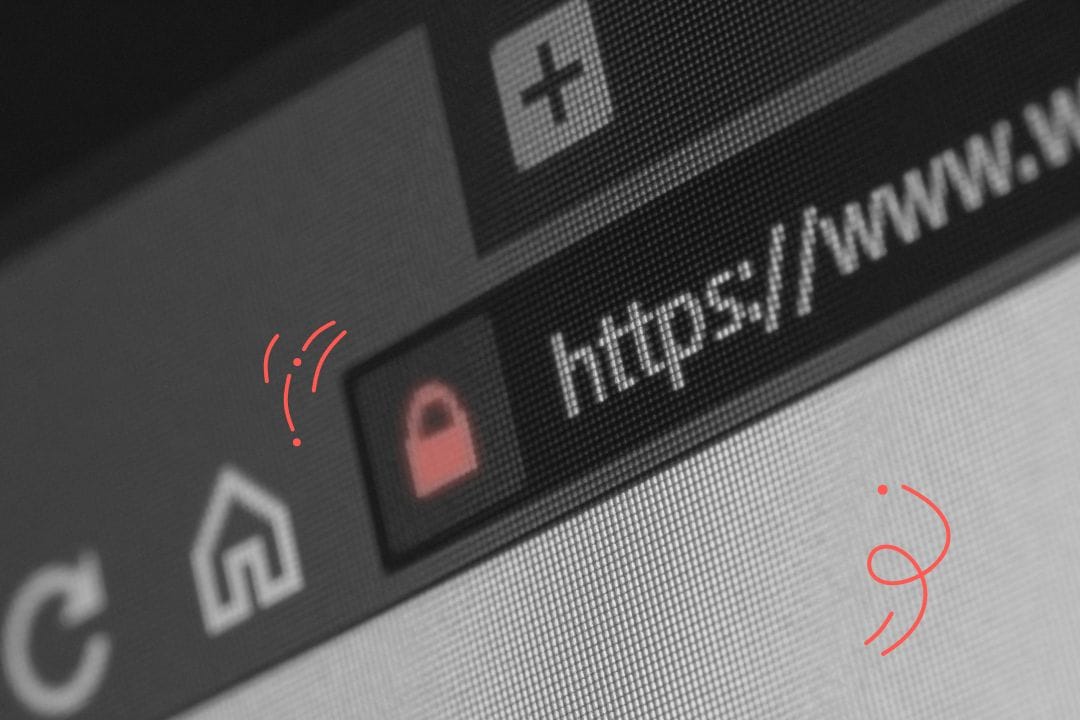
So, what’s the price of an SSL certificate in 2025? Our handy guide to prices and what you get for your money has you covered.
Table of Contents
So, you’ve finally decided to get an SSL certificate to make sure your website is secure and gives your visitors confidence. But how much does an SSL certificate cost? There are so many options out there.
In this article, we’ll cover all the different types and functions, as well as SSL costs to help you choose the one that’s right for you.
It doesn’t matter if you’re a small business owner with barely any knowledge of the Internet or the IT director of a large eCommerce site with customers all around the globe. Our guide has you covered when it comes to purchasing an SSL certificate.
So, let’s dive in and check out the cost of an SSL certificate in 2025.
What Is an SSL Certificate? Starting From Scratch
Alright, let’s start with the basics. What exactly is an SSL certificate? Think of it like sending a letter in the post. For it to stay private, you’d seal it inside an envelope. An SSL certificate works in a similar way. It encrypts your online data.
SSL, aka Secure Sockets Layer, is a digital certificate that encrypts a computer’s communications with a website. When you have an SSL certificate, your website’s URL starts with “https” instead of just “http.”
This encryption makes sure that sensitive data like login credentials, credit card numbers, and personal information stay private and safe from prying eyes.
Now, let’s move on to the nitty-gritty of how SSL certificates work.
How SSL Works: The Encryption Warrior
SSL keeps your website’s data safe and sound. Each time someone visits your website, the browser and your server go through what’s called the “SSL handshake”. During this handshake, they exchange keys and agree on a secret code for encryption.
After that handshake, the secret code is used to encrypt all the data transmitted from the visitor’s browser to your site and vice versa.
If a boogeyman were to try listening in on what’s being transmitted, the only things that person would be able to make out are gibberish messages.
At the same time, your website and the browser of your visitor can have their conversation, safe in the knowledge that no eavesdropper can decipher their data.
That’s SSL in action. The encryption warrior that stands guard over your website’s data, keeping the bad guys out and your visitors’ information safe and secure.
Different Types of SSL Certificate: Let’s Dive In
OK so there are three main types of SSL certificates:
- Domain Validated (DV)
- Organisation Validated (OV)
- Extended Validation (EV)
Let’s explore the different types of SSL certificates and compare them in a handy table.
| Feature | DV SSL | OV SSL | EV SSL |
| Encryption level | ✅ | ✅ | ✅ |
| Domain validation | ✅ | ✅ | ✅ |
| Organisation validation | ✖ | ✅ | ✅ |
| Extended validation | ✖ | ✖ | ✅ |
| Issuance time | Any length of time up to 15 mins | Up to two days | Up to ten days |
| Visible trust indicators | ✅ | ✅ | ✅(Green address bar) |
| Best used for | Blogs, personal websites | Businesses, organisations | ECommerce, large enterprises |
As you can see, all three types offer encryption and domain validation. But more premium SSL certificates like OV and EVgo the extra mile by validating the organisation behind the website, with EV being the most thorough.
DV SSL is the quickest to issue and is perfect for blogs and personal websites. OV SSL is a great choice for creating a business website that establishes trust. EV SSL, with its famous green address bar, is the cream of the crop for eCommerce sites and large enterprises.
So, whether you’re a small fish or a big kahuna, there’s an SSL certificate type that’s just right for your website.
What Comes with an SSL Certificate?
When you get an SSL certificate, you get a superhero sidekick for your website. But what exactly does this sidekick bring to the table? Let’s find out.
- Encryption: This is the bread and butter of SSL certificates. You get top-notch encryption to safeguard sensitive data as it travels between your website and visitors’ browsers. Kind of like a protective shield against cyber-criminals.
- Trust and Credibility: Displaying that trusty padlock icon in the address bar signals to your visitors that your website is secure. Plus, if you go for an Extended Validation (EV) SSL certificate, your company name gets a prominent display, boosting your domain security and credibility even further. Sweet.
- Compatibility: SSL certificates make sure your website is compatible with all modern browsers, giving your visitors a seamless browsing experience no matter what browser they’re using.
- Customer Support: And let’s not forget about the customer support that comes with your SSL certificate.
- Warranty: Your SSL certificate also comes with a warranty. It’s an insurance policy for your website. If something goes wrong with your SSL certificate, you’ve got some financial protection to fall back on.
So, when you get an SSL certificate, you’re not just getting encryption. You’re also getting a whole package deal that includes trust, protection, and support. Your very own website security starter kit.
Pretty neat, huh? Now, let’s get down to brass tacks: how much does all this digital bodyguarding cost?
How Much Is an SSL Certificate, and Why Do They Cost Money Anyway?
Ah, the million-dollar question: how much does an SSL certificate cost, and why do you have to pay for it anyway?
Let’s hash out the second one first.
If you’re wondering why SSL certificates cost money in the first place, here’s the scoop:
- Validation Process: Before issuing an SSL certificate, Certificate Authorities (CAs) verify the identity of the certificate applicant. This validation process takes time and resources, which adds to the overall cost of the certificate.
- Encryption Technology: SSL certificates rely on advanced encryption technology to secure data transmitted between websites and visitors. Developing and maintaining this technology means ongoing investment and expertise.
- Trust and Assurance: SSL certificates aren’t just about encryption. They also provide trust and assurance to website visitors. Certificate Authorities invest in building and maintaining their reputation to make sure their certificates are trusted by browsers and users alike.
Now, let’s explore pricing.
When it comes to SSL certificate costs, prices can vary depending on the type of certificate and the provider you choose. There’s a range of options to suit different needs and budgets.
For a basic DV SSL certificate, you can expect to pay around £5 to £30 per year. These are like the studio flats of the SSL world. They provide the essentials without any flashy extras.
If you’re looking for something a bit more substantial, OV SSL certificates typically cost between £50 to £150 per year. They’re perfect for small to medium-sized businesses that want more validation and trust.
Now, if you’re aiming for the top tier of SSL certificates, EV SSL is the way to go. These premium certificates can cost anywhere from £100 to £1,000 or more per year, depending on the provider and the warranty level.
They’re like the luxury penthouses of SSL. They’re impressive, feature-rich, and designed to impress with the highest level of trust and security.
What Affects SSL Certificate Cost? Or Do They Just Pick a Figure?
SSL certificate charges aren’t just plucked out of thin air. There are a few key factors that influence the price.
Cost By Type
Another factor to think about is the type of SSL certificate you need. While we’ve mainly talked about standard SSL certificates, there are also wildcard SSL certificates and multi-domain SSL certificates.
Wildcard SSL certificates can secure an unlimited number of subdomains under a single domain, while multi-domain SSL certificates can secure multiple distinct domains. These types of certificates often come with a higher price tag due to their increased flexibility and coverage.
Cost By Validation
Certificate Authorities (CAs) carry out a validation process to verify the identity of the certificate applicant. This process takes time and resources, which all add to the overall cost of the certificate. The more thorough the validation, the higher the cost.
Brand Reputation
Brand reputation can also play a role in SSL certificate pricing. SSL certificates from well-established, reputable brands often come with a higher price tag, but they also offer more reliable support and resources.
You’re buying from a trusted, high-end provider as opposed to a lesser-known discount provider. You might pay more, but you’re also getting better service and peace of mind.
Additional Features
Many SSL providers offer add-on features such as malware scanning, vulnerability assessment, and warranty protection. These extras can bump up the cost of your SSL certificate but may provide added value depending on your security needs.
Validity Period
The length of the SSL certificate’s validity period can also affect the price. Some certificates are valid for just one year, while others can last up to two or even three years.
Warranty Level
Another factor that can impact the cost of an SSL certificate is the warranty level. Some SSL certificates come with higher warranty amounts, which means more financial protection if something goes wrong.
Customer Support
The level of customer support and resources provided by the SSL certificate vendor can also affect pricing. Some vendors offer premium support packages, priority response times, or additional security tools and resources.
These extra perks can drive up the cost of the SSL certificate, but they may be worth it if you need quick, reliable support or want access to advanced security features.
Pricing Model
Lastly, the pricing model of the SSL certificate vendor can also play a role in the cost. Some vendors offer discounts for longer subscription periods or bulk purchases, while others may have more straightforward pricing structures.
What Is the Most Expensive SSL Certificate?
Alright, let’s talk about the most expensive option out there in the SSL certificate world.
When it comes to the priciest SSL certificates, Extended Validation (EV) SSL certificates often take the cake. These are the luxury cars of the SSL world, with prices that can rev up to £2,000 or more per year.
But why are EV SSL certificates so expensive?
Well, it’s all about the level of validation and trust they provide. EV SSL certificates have the most extensive vetting process, which involves verifying the legal existence and identity of the company or organisation behind the website.
This thorough validation process takes time and resources, which is why EV SSL certificates come with a higher price tag. But for many large enterprises and eCommerce sites, the added trust and credibility of an EV SSL certificate is well worth the investment.
How to Buy SSL Certificates: What You Need to Know Before You Do
OK, assuming you’re ready to buy, here’s what to keep in mind before you reach for your wallet.
- Decide If You Need an SSL Certificate: Before you go on the hunt for an SSL certificate, figure out what kind of certificate your website actually needs. Do you have an eCommerce website requiring your site to be PCI compliant? Does your site need to protect user information for legal reasons (other than compliance)?
- Choose the Best Level of Validation: You must pick the level of validation you need for your SSL certificate: Domain Validation (DV) certificate, Organisation Validation (OV) certificate, or Extended Validation (EV) certificate. Each validation level corresponds to a different level of caution and credibility. Choose the validation level that matches your site’s objectives and target audience.
- Pick a Reputable SSL Certificate Provider: Not all SSL certificate providers are equal; some providers are more reliable than others. Choose a reputable, reliable SSL provider with good standing in the market that can provide SSL certificates and pricing information on their website. Look for providers with a good history of providing reliable SSL certificates and good customer support services.
- Compare Features and Prices: Consider the type of certificate (single, wildcard, or multi-domain); the validation level (domain, domain with company name, organisation, or others); the amount of warranty; and the time interval for which the certificate is valid. Go for the greatest price-to-value ratio rather than the cheapest offer.
- Gather Documents and Information: You may need to provide certain documents and information to complete the validation process. This could include things like business registration documents, proof of domain ownership, and contact information for your organisation. Make sure you have all the right paperwork and details ready to go before you start the buying process.
- Complete the Purchase and Installation Process Properly: Follow the provider’s instructions carefully, and don’t hesitate to reach out to their customer support team if you have any questions or run into any issues.
SSL Certification in 8 Easy Steps
Here’s a simple, step-by-step guide to help you navigate the SSL certification process like a champ.
1. Choose the Right SSL Certificate
Think of SSL certificates like different levels of security clearance. DV is the basic package, OV is the middle ground, and EV is the top-tier, “all-access” pass.
2. Buy Your SSL Certificate
Once you’ve decided on the type of SSL certificate you need, it’s time to make it official and purchase it from a trusted SSL provider.
3. Verify Your Domain Ownership
When you bag your SSL certificate, make sure the domain registration information for your website is accurate and up-to-date, as this information is used during the SSL certificate validation process to verify your ownership and control over the domain.
4. Generate a Certificate Signing Request (CSR)
Next, you’ll need to generate a CSR, which is basically a fancy way of saying, “Fill out a form with some technical details about your website.” Don’t worry, it’s not as scary as it sounds. Most SSL providers will guide you through the process.
5. Complete the Validation Process
Depending on the type of SSL certificate you choose, you may need to complete some additional validation steps.
6. Install Your SSL Certificate
Once your SSL certificate is issued, it’s time to install it on your website. Make sure it’s displayed properly for everyone to see.
7. Configure Your Website For HTTPS
After your SSL certificate is installed, make sure that your domain name system (DNS) records are properly configured to use HTTPS instead of HTTP.
8. Test Your SSL Installation
Before you call it a day, it’s important to test your SSL installation to make sure everything is working properly.
And there you have it. SSL certification in eight easy steps.
Buy Your SSL Certificate From OnlyDomains and Have Peace of Mind For Your Business and Customers
Ready to take your website’s security to the next level? Look no further than OnlyDomains for all your SSL certificate needs.
We know that choosing an SSL certificate can be overwhelming with so many options and technical jargon out there. But at OnlyDomains, we make the process simple, straightforward, and stress-free.
Visit OnlyDomains now to buy your SSL certificate and take the first step towards a safer online experience.
Don’t wait until it’s too late. Secure your website today and enjoy peace of mind for your business and your customers.

